

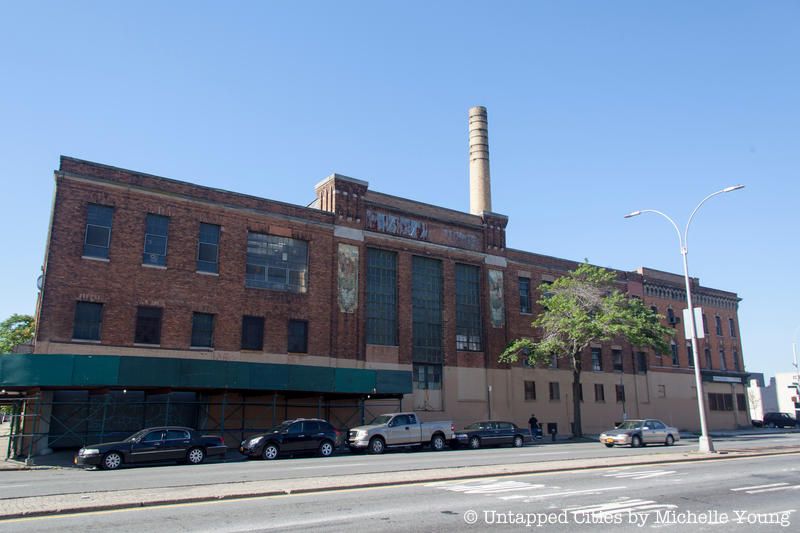
East New York’s Empire State Dairy, a beautifully tiled complex that once processed milk and made ice cream, could officially become a landmark today. Given its history and significance to the neighborhood, it’s one of the locations featured in Secret Brooklyn: An Unusual Guide

by Untapped Cities founders, Michelle Young and Augustin Pasquet. Last week, the item appeared on the Landmarks Preservation Commission’s calendar after a drawn out designation process, multiple hearings and and urging from local preservationists, Brownstoner reports.
[UPDATE]: The New York City Landmarks Preservation Commission (LPC) has now designated the Empire State Dairy Building a landmark. “The Commission is proud to landmark Empire State Dairy,” said Landmarks Preservation Commission Chair Meenakshi Srinivasan. “These brick buildings stand today as century-old reminders of the once prominent New York dairy companies and of East New York’s and Brooklyn’s important industrial past.”
For more than the last half century, East New York remained a somewhat forgotten transportation junction, struggling through social and economic issues prompted by decades-long neglect and questionable urban policy. In recent years, renewed interest in East New York was spurred by city government, interested in rezoning the neighborhood to encourage economic growth, long-term development and affordable housing inventory. The East New York rezoning plan was passed in April 2016, and according to the New York City Department of City Planning’s environmental impact statement, Empire State Diary (2840 Atlantic Avenue) could be demolished or altered significantly if it is not protected.
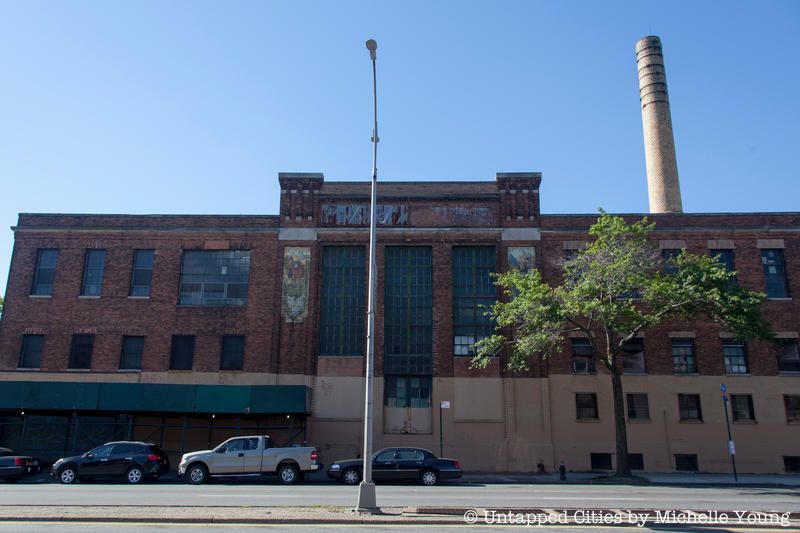
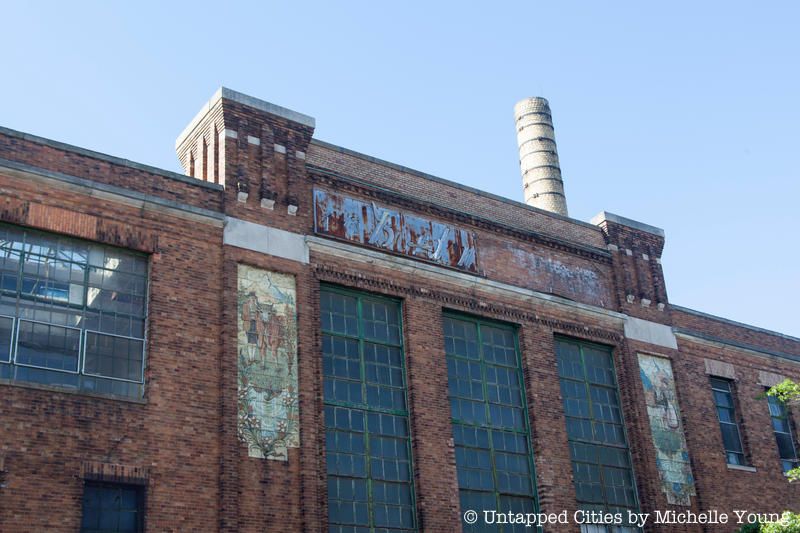
Even before the rezoning initiative was, however, underway, Michael Padwee, a historian and tile collector, has been fighting to save building since the 1990s. Built in 1914 when the company was known as Borden’s Dairy Factory, Empire State Dairy includes five buildings within a 76,375 square foot property. Of particular importance to Padwee is the presence of two vertical tile murals on the facade, a site-specific commission for the Empire State Dairy building and produced under the oversight of Leon Solon, the art director of the American Encaustic Tiling Company. The Ohio-based firm was once the largest tile producer in the world, with a showroom in midtown Manhattan. The company did experimental work for the first New York City subway line, and although it did not win the final bid (which went to Carrere and Hastings), some test tiles remained at the Columbus Circle station, revealed and shown to the public following a 2007 renovation.
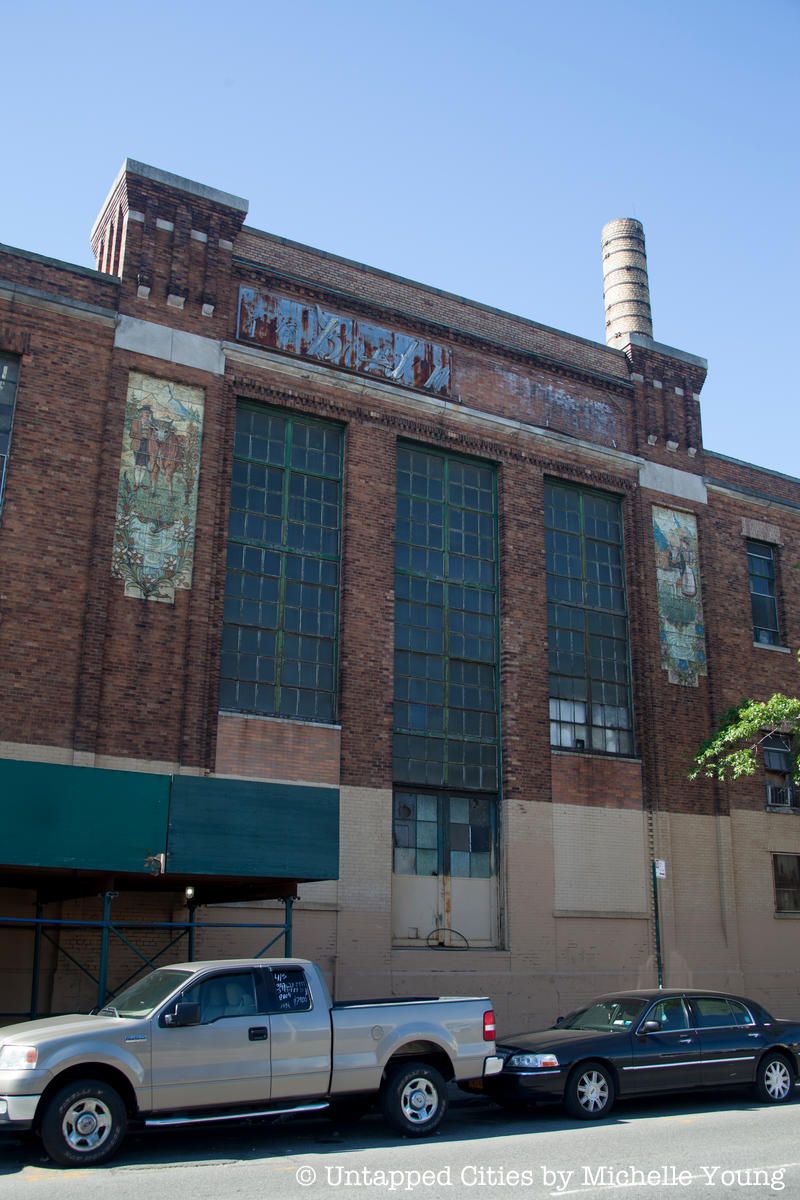
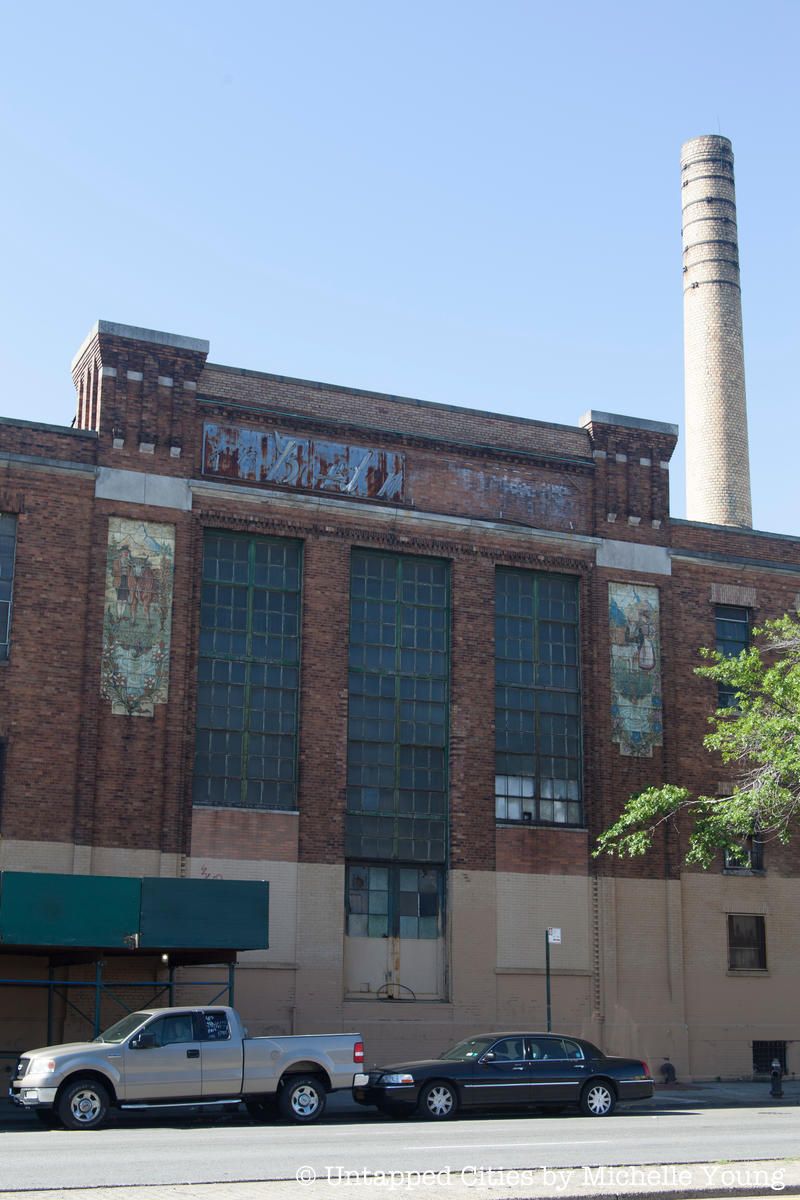
According to Padwee, the two tile murals on the facade of the Empire State Dairy building are “probably the largest murals by this company that are still existing.” They show a pastoral scene of cows alongside dairy workers wearing German traditional clothing. Padwee believes these tiles were made using the wet process, rather than mass-production methods. The bright glazed tiles are in high relief, a style known as majolica. This pottery style debuted in Europe and was popularized at the Great Exhibition in 1851, held at London’s Crystal Palace.
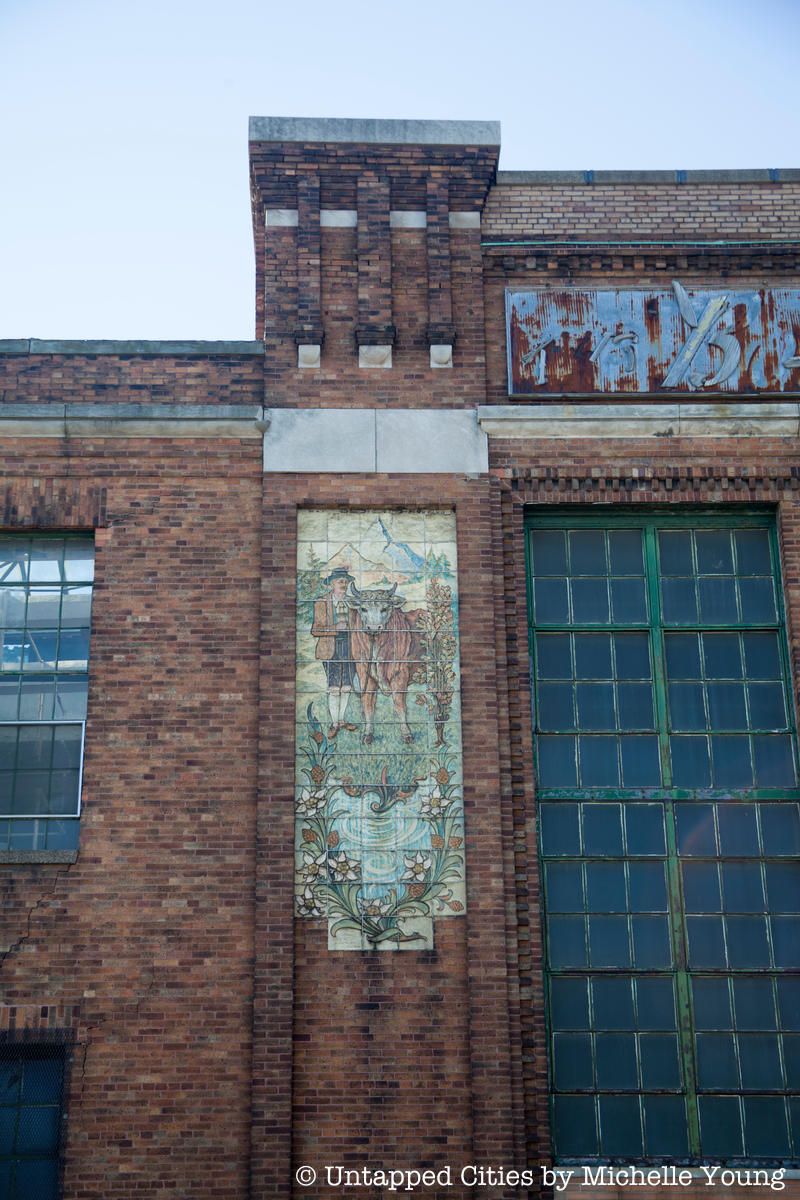
The buildings have not been used as a dairy factory since the 1950s and the rezoning plan has put many un-landmarked buildings in East New York at risk. Landmarks Preservation Commission chair Meenakshi Srinivasan stated in March 2016, “The Empire State Dairy buildings are some of the most impressive and historically significant in East New York.”
Next, check out 10 of Brooklyn’s Weirdest Places from New Book Secret Brooklyn: An Unusual Guide and discover 20 Abandoned Places in New York City.

